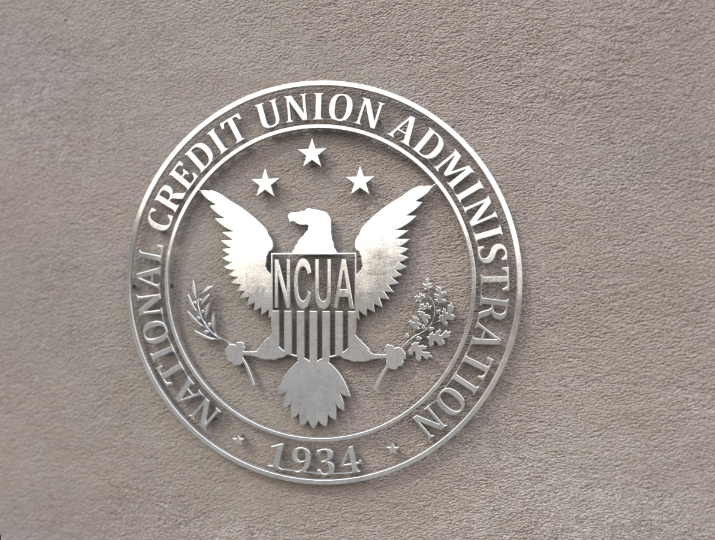All You Need to Know about NCUA Insurance

In the spring of 2023, three high-profile regional bank failures raised concerns among consumers about the security of their own banks.
For credit union members, the National Credit Union Administration (NCUA) insures deposits, much like the Federal Deposit Insurance Corp. (FDIC) does for banks. Although credit unions and banks have different insurance agencies, both federal entities follow similar rules and processes and share the same insurance cap on depositor funds.
Here’s what you need to know about the NCUA and its insurance coverage per account.
What is NCUA insurance?
One of the NCUA’s key responsibilities is managing the National Credit Union Share Insurance Fund (NCUSIF). The NCUSIF ensures that money in credit union accounts is backed by the full faith and credit of the U.S. government.
For all federal credit unions and most state-chartered credit unions, the NCUSIF provides up to $250,000 in coverage for each single ownership account.
How does NCUA insurance work?
When a credit union fails, the NCUA is responsible for managing and closing the institution. The NCUA’s Asset Management and Assistance Center handles the liquidation process and returns funds from accounts to members, typically within five days of closure. Occasionally, the NCUA may use the liquidated funds to pay off any outstanding loans of the account holder.
Despite this, it’s rare for a credit union to be liquidated by the NCUA. NCUA insurance is essential for keeping depositors protected when a credit union fails.
Outright liquidation of credit unions, where the institution is closed permanently and members receive payments to cover their share-account balances, is uncommon, says Tom Glatt, a credit union strategy consultant and founder of Glatt Consulting Group.
“Usually what the NCUA tries to do is, if the credit union has a fair number of problems and is not going to survive on its own, they’ll try to find another credit union partner that can take on that institution so that the members themselves don’t see any disruption,” he says.
Accounts at credit unions backed by the NCUA are automatically insured, and members don’t need to take any extra steps to ensure their money is protected.
What are the limits on NCUA insurance and how can you get the most from it?
Federal insurance limits for credit unions vary for single and joint accounts.
The NCUSIF insures up to $250,000 of an individual’s total balance across their credit union accounts. For example, if Fred has $150,000 in a savings account and $100,000 in a money market account at the same credit union, his total deposits of $250,000 are fully insured by the NCUA.
For joint accounts, the NCUSIF provides an additional $250,000 in coverage for each account holder. This insurance is separate from that of single ownership accounts. For instance, if Fred and Mary jointly own a savings account, that account is insured up to $500,000 — $250,000 per account holder. Fred’s single ownership accounts totaling $250,000 are also fully insured separately, giving him a combined federal insurance coverage of up to $750,000 when considering both his single and joint accounts.
Single ownership accounts with beneficiaries do not qualify for joint account insurance. However, the NCUA offers separate insurance for trust accounts, which are managed by a designated person or firm on behalf of one or more beneficiaries. Each beneficiary on such accounts may qualify for an additional $250,000 in insurance coverage.
The NCUA does not insure money invested in:
- Mutual funds
- Stocks
- Bonds
- Life insurance policies
- Annuities
Consumers can use the share insurance estimator on the NCUA website to determine whether all of their assets are insured.
NCUA vs. FDIC
Both the NCUA and FDIC are responsible for insuring funds in case a financial institution fails.
The NCUA insures credit union accounts, while the FDIC insures bank accounts. Both agencies offer the same insurance coverage limits. Therefore, your decision to keep money in a credit union or a bank shouldn’t be influenced by which federal agency insures the institution.
Credit unions not insured by NCUA
Although all federal and most state-chartered credit unions are covered by the NCUA, there are a few exceptions. State-chartered credit unions are regulated by the state and may not have federal insurance. If a state-chartered credit union lacks federal insurance, it will be privately insured and not backed by the federal government.
Some private insurers may offer higher coverage amounts than the NCUA, but this coverage does not have the full protection of the U.S. government. You can verify if a credit union is federally insured through the NCUA website’s searchable database.
It’s important to note that even if a credit union is insured, not all deposits might be fully covered. Similar to the FDIC, the NCUA has a coverage cap of $250,000 per depositor, per account. Therefore, it is possible for an insured credit union to have deposits that exceed this limit and are not covered.
In the aftermath of the Silicon Valley Bank collapse in March 2023, the FDIC announced it would repay all depositors, insured or not. While the NCUA might take similar action in the event of a credit union collapse, you should assume you will only receive the limit allowed by law to ensure you are adequately covered. Due to differences in the factors leading to the collapse of a bank versus a credit union, the NCUA’s response might vary.
In Conclusion
If your money is in a federally insured credit union share account, it is relatively safe in the event of a closure, provided you adhere to NCUA guidelines.
The $250,000 limit on NCUA insurance may impact some members, but you can still ensure full coverage by distributing funds. For instance, you can hold money in a joint ownership account or keep some funds in a bank account.
MORE FROM resultsfordeals.com












